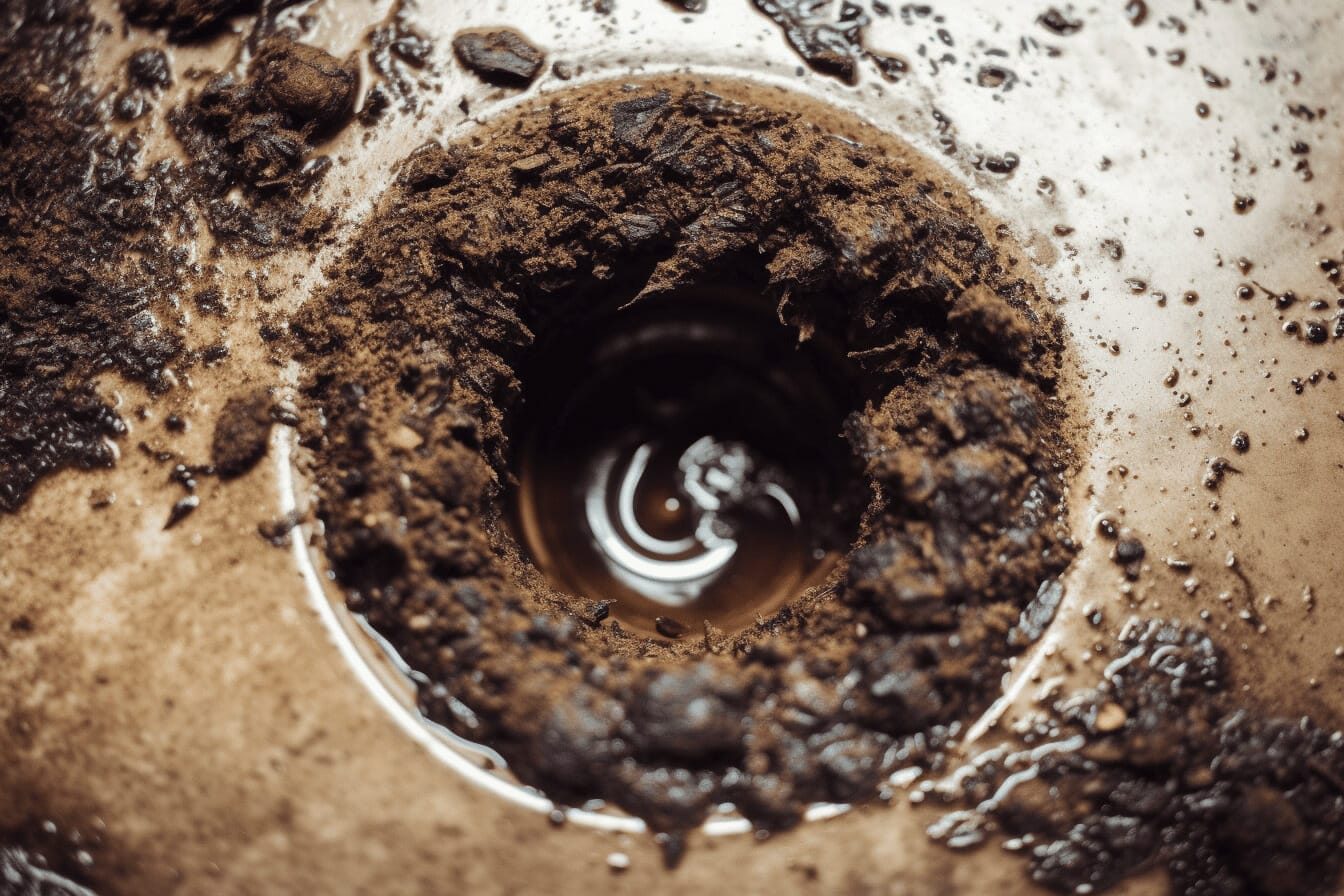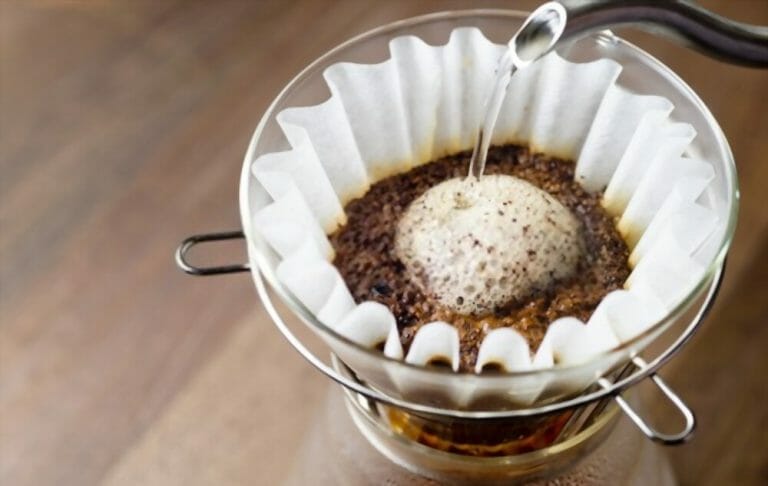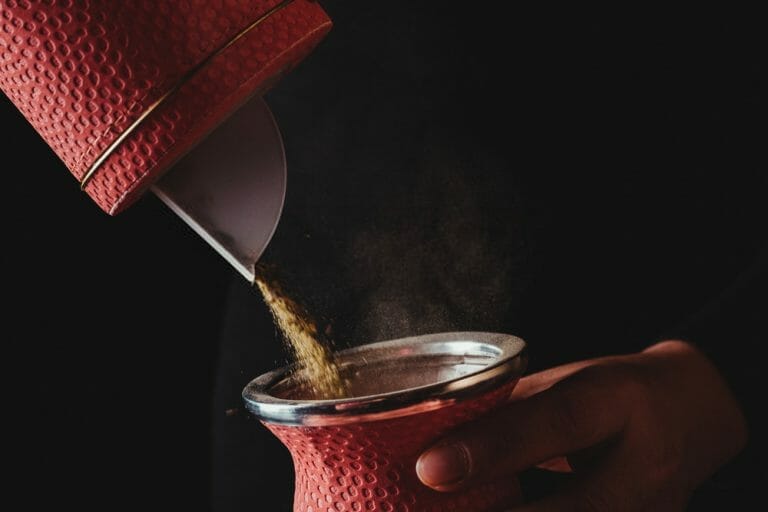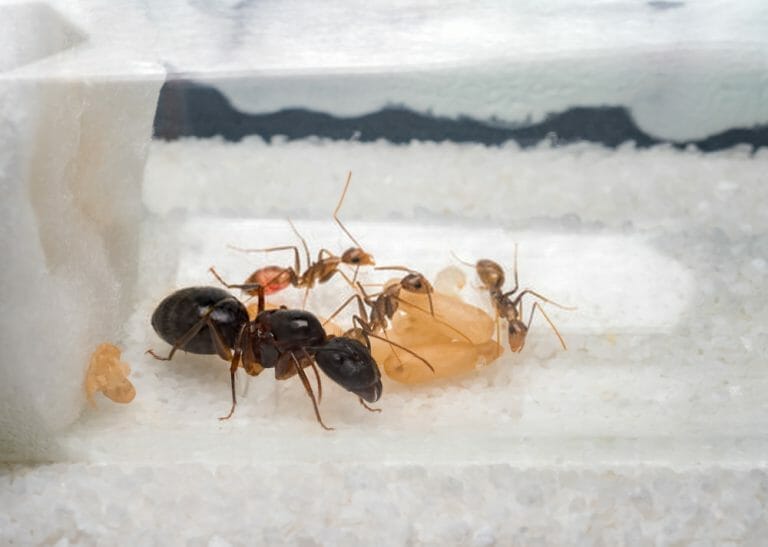Can Coffee Grounds Clog A Drain – Find Out Now!!!

If you’re an avid coffee drinker, you probably have a routine of brewing your favorite cup every morning. But have you ever wondered what happens to those leftover coffee grounds?
Many people simply dump them down the drain, not realizing that this could lead to plumbing issues down the line.
So, can coffee grounds clog a drain? The answer is yes – and in this article, we’ll explore why that happens and what you can do to avoid it.
When coffee grounds mix with water, they form a thick sludge that can easily stick to the sides of your pipes. Over time, this buildup can cause blockages and even lead to serious plumbing problems that require professional help.
And while it may seem like a small issue at first, ignoring it could result in costly repairs and inconvenience for you and your household.
Fortunately, there are several ways you can dispose of coffee grounds without putting your pipes at risk – from composting them to using them for other creative purposes around the house.
Let’s dive in!
How Coffee Grounds Lead to Drain Clogs
If you’ve ever experienced the frustration of a backed-up sink, you know how infuriating it is when everyday items refuse to cooperate with your plumbing system. Coffee grounds are one such item that can wreak havoc on your pipes.
While they may seem harmless, coffee grounds can cause major issues for your sink drain and garbage disposal.
Unlike other organic food waste, coffee grounds don’t break down in water. Instead, they clump together and create a solid mass that packs the drain over time, leading to a clogged drain.
Not only do coffee grounds refuse to break down in water, but they can also build up inside your drain pipes.
As the coffee grounds sit in the pipe, they accumulate and form blockages that prohibit the drains from doing their job correctly. This buildup can cause slow draining or even complete blockages.
So next time you’re tempted to pour those used coffee grounds down the sink or garbage disposal, think twice! Instead, dispose of them properly in the trashcan or compost bin.
Transition: Now that you know how harmful coffee grounds can be for your sink drain and garbage disposal, let’s discuss some of the best ways to dispose of them without causing any damage to your plumbing system.
Best Ways to Dispose of Coffee Grounds
1. Understand the Problem
Understand that contrary to popular belief, coffee grounds can clog drains. When you put coffee grounds down your sink or garbage disposal, they can accumulate and mix with grease or other particles. This mixture may solidify, leading to coffee ground buildup and a blocked drain that’s challenging to clear.
2. Make Use of Your Morning Coffee Residue
After enjoying your morning coffee, don’t throw away the coffee grounds. Instead, recognize their potential uses. They can be used as a natural fertilizer or added to your compost pile.
3. Composting Coffee Grounds
Instead of letting coffee grounds lying useless, mix them with organic waste such as leaves, grass clippings, and vegetable scraps. This mixture will create nutrient-rich compost for your garden, a practical and eco-friendly solution.
How to Compost Coffee Grounds for a Nutrient-Rich Garden Soil
- Collect coffee grounds: Collect the coffee grounds from your coffee maker or filter. Do not dispose of the coffee grounds in the sink as they can clog the drains.
- Rinse the coffee grounds: Rinse the coffee grounds with water to remove any excess oils and residue. This will help to prevent any unpleasant odors and pests from being attracted to the compost.
- Add the coffee grounds to the compost: Once the coffee grounds have been rinsed, add them to your compost pile. The coffee grounds are a great source of nitrogen for your compost and will help to break down the other organic materials.
- Mix the compost pile: Mix the compost pile regularly to ensure that the coffee grounds are evenly distributed and broken down. This will help to speed up the composting process and produce a high-quality compost.
- Use the compost: Once the compost has fully decomposed, use it to enrich your garden soil. The nutrient-rich compost will help to improve the soil structure and promote healthy plant growth.
4. Use Coffee Grounds as a Natural Fertilizer
Spread the coffee grounds directly onto the soil around your plants. They will not only enrich the soil with nutrients but also help to improve drainage, water retention, and aeration.
Here are some tips:
- Coffee grounds are high in nitrogen, which is essential for plant growth. So, mix them in with your soil to give your plants a boost.
- They’re also great for acid-loving plants like azaleas, rhododendrons, and blueberries. Just sprinkle the grounds around the base of the plant.
- Coffee grounds can deter pests too! Slugs and snails hate the stuff, so spread some around your plants to keep them away.
- Don’t have a garden? No problem! You can still use coffee grounds to fertilize your indoor plants. Just mix them in with the soil or sprinkle them on top.
5. Dispose of Coffee Grounds in Sink, if Needed
If you really must dispose of coffee grounds down the drain, make sure they are completely removed to avoid clogging.
You can do this by rinsing the drain with a solution of baking soda and hot water after disposal.
This will help dissolve any remaining coffee ground particles before they solidify and cause a blockage.
6. Consider Other Uses of Coffee Grounds
Coffee grounds have a certain texture that makes them excellent for DIY body scrubs.
They can exfoliate your skin, remove dead skin cells, and leave your skin feeling soft and rejuvenated.
7. Use Coffee Grounds as an Air Purifier
Coffee grounds can also work as an air purifier. Put coffee grounds in a bowl or an open container and place it in your living room or kitchen. It can help neutralize odors and keep your space smelling fresh and clean.
Remember, by finding uses for your coffee grounds, you’re not only saving your drains from potential clogs but also contributing positively to the environment by reducing waste.
Turning Coffee Grounds into Compost
Turning used coffee grounds into compost is an eco-friendly solution that can reduce waste and improve soil quality.
This can attract beneficial microorganisms and earthworms to your garden. Did you know that according to the EPA, food scraps and yard waste make up 30% of what we throw away?
This could have been composted instead. By turning your used coffee grounds into compost, you’re helping to close the loop on organic waste and returning valuable nutrients back into the soil.
To start, simply add your used coffee grounds to your compost pile and mix them in.
Coffee grounds are considered green material and will need to be balanced with brown material such as dried leaves or shredded paper.
This will help maintain a healthy carbon-to-nitrogen ratio for optimal decomposition.
Additionally, don’t forget that even your used coffee filters can be added to the compost pile!
Composting coffee grounds not only helps divert waste from landfills but also improves soil health and promotes plant growth. So why not give it a try with your next cup of ground coffee?
And speaking of leftover coffee grounds, did you know there are creative ways to use them around the house? Let’s explore some fun ideas for repurposing those leftovers!
Creative Uses for Leftover Coffee Grounds
Get creative with your leftover java remnants by using them in a variety of ways that promote sustainability and eco-friendliness.
Whether you have a garden or not, coffee grounds can be used to repel pests, fertilize plants, and even make homemade coffee candles.
For those who enjoy self-care rituals, reuse your coffee grounds as a luxurious body scrub that exfoliates and hydrates the skin simultaneously.
Additionally, leaving bowls of coffee grounds in the fridge or around your home will naturally deodorize any unpleasant odors.
To get started on your journey towards more sustainable living, here are three creative uses for leftover coffee grounds:
- Mix equal parts coffee grounds and coconut oil to create an all-natural hair exfoliator that removes product buildup from your scalp and strands.
- Use a handful of coffee grounds mixed with dish soap to scour pots and pans clean without damaging the surface.
- Dry out your used coffee grounds before sprinkling them around the base of plants for an added dose of nitrogen-rich fertilizer.
With so many practical uses for leftover coffee grounds, it’s no wonder they’re becoming increasingly popular among those looking to reduce waste in their homes.
However, it’s important to note that improper disposal can lead to plumbing issues down the line. To avoid this problem altogether, check out our tips for avoiding plumbing issues with coffee grounds in the next section.
Tips for Avoiding Plumbing Issues with Coffee Grounds
Pouring coffee grounds down your sink is a common mistake that can escalate into a significant issue.
Over time, they accumulate within the pipes, eventually leading to a blocked sink drain. To circumnavigate this potential problem, there are a few best practices to consider.
Firstly, consider disposing of coffee grounds in your trash can or better yet, compost them.
They are rich in nitrogen and provide a valuable addition to your compost pile, contributing to a more sustainable disposal method.
Additionally, ensure you clean out any residual coffee grounds from your French press or coffee maker before washing them in the sink.
This practice will help minimize the amount of grounds that might find their way into your plumbing system.
Moreover, employing the use of a sink strainer can be a significant preventive measure.
Positioned over your sink, a strainer can catch any stray coffee grounds that have accidentally ended up in your cup or pot, preventing them from washing down the drain.
By observing these precautions and remembering that coffee grounds clog drains, you can effectively guard against sink clogs, saving you from the inconvenience and expense of potential plumbing repairs.
FAQs
Conclusion
In conclusion, you now know that coffee grounds can cause clogs in your drain. But fear not, there are several ways to dispose of them properly.
If you’re looking for an eco-friendly option, turning them into compost is a great way to repurpose them. And if you’re feeling creative, try using leftover coffee grounds as a natural exfoliant or even as a pest deterrent in your garden.
However, the easiest way to avoid plumbing issues with coffee grounds is to simply throw them away in the trash. By taking this simple step, you can save yourself from costly repairs and keep your drains running smoothly.
So next time you make yourself a cup of joe, remember to dispose of those grounds responsibly and enjoy your coffee without any worries! As Maya Angelou once said, “Do the best you can until you know better. Then when you know better, do better.”






